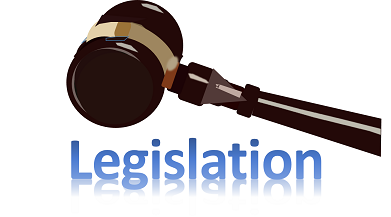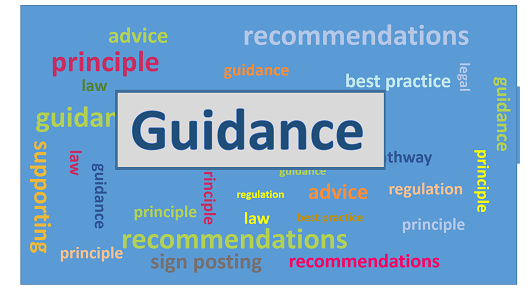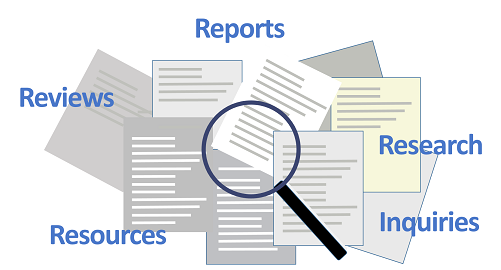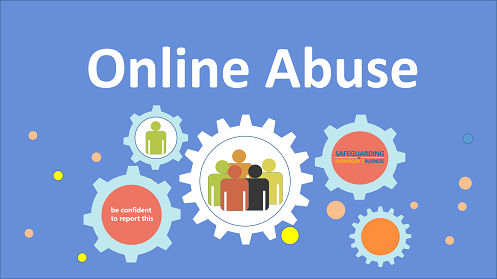Safeguarding News October 2023
Welcome to the SAFEcic October2023 newsletter, packed with recent headlines, useful resources and guidance.
Newsletter Highlights
There has been an important update to the guidance published for the Rehabilitation of Offenders Act 1974 and if you or your organisation recruit personnel, you need to be aware of the impact on DBS checks and the information disclosed, in order to remain compliant.
Included in this issue is the long-awaited and newly ratified Online Safety Act 2023, heralding a new era in internet safety. Also included is a section on identifying and managing harmful gambling, plus we have the latest news on the banning of mobile phone usage in schools and a somewhat sobering insight on the negative impact of AI (Artificial Intelligence) on the imagery of real child victims.
Phishing scams are becoming increasingly sophisticated and following the release of the government's statistics on cyber security breaches, phishing scams were the most prolific cyber security threat in 2022. We take a look at the best ways of avoiding becoming a victim of these scams.
Finally, theres's a look ahead to Safeguarding Adults Week 2023, running from 20 - 24 November. We signpost a variety of resources to help you and your organisation take part.
Please read on....
Training Schedule
Our latest training schedule is listed below and feel free to share this email with your colleagues and they too can join our newsletter database.
To sign up simply click here.
Services Update
SAFEcic is also accepting many more bookings for its Rapid Review Service, its face to face safeguarding training and audit services. There is also a packed calendar of blended learning events available to book for your organisation. The courses are a very cost effective way of training your staff and volunteers.
SAFEcic Blended Learning Training Calendar
Leading on Child and Adult Safeguarding
Safeguarding Training, Leading on Child and Adult. Online course plus Zoom
Tue 9 January 2024
10:30 - 12:00 GMT
Safeguarding Training, Leading on Child and Adult. Online course plus Zoom
Thu 8 February 2024
10:30 - 12:00 GMT
Safeguarding Training, Leading on Child and Adult. Online course plus Zoom
Tue 12 March 2024
10:30 - 12:00 GMT
Safeguarding Training, Leading on Child and Adult. Online course plus Zoom
Tue 16 April 2024
10:30 - 12:00 GMT
Safeguarding Training, Leading on Child and Adult. Online course plus Zoom
Wed 8 May 2024
10:30 - 12:00 GMT
Safeguarding Training, Leading on Child and Adult. Online course plus Zoom
Tue 11 June 2024
10:30 - 12:00 GMT
Safeguarding Training, Leading on Child and Adult. Online course plus Zoom
Tue 9 July 2024
10:30 - 12:00 GMT
Standard Child and Adult Safeguarding
Safeguarding Training, Standard Child and Adult. Online Course plus Zoom
Thu 30 November 2023
10:30 - 12:00 GMT
Safeguarding Training, Standard Child and Adult. Online Course plus Zoom
Tue 13 February 2024
10:30 - 12:00 GMT
Safeguarding Training, Standard Child and Adult. Online Course plus Zoom
Wed 27 March 2024
10:30 - 12:00 GMT
Safeguarding Training, Standard Child and Adult. Online Course plus Zoom
Thu 16 May 2024
10:30 - 12:00 GMT
Safeguarding Training, Standard Child and Adult. Online Course plus Zoom
Tue 2 July 2024
10:30 - 12:00 GMT
Safeguarding: Trustees’ legal responsibilities
Safeguarding: Trustees' legal responsibilities. Online Course plus Zoom
Wed 31 January 2024
10:00 - 11:30 GMT
Safeguarding: Trustees' legal responsibilities. Online Course plus Zoom
Thu 14 March 2024
10:00 - 11:30 GMT
Safeguarding: Trustees' legal responsibilities. Online Course plus Zoom
Tue 21 May 2024
10:00 - 11:30 GMT
Safeguarding: Trustees' legal responsibilities. Online Course plus Zoom
Wed 10 July 2024
10:00 - 11:30 GMT
Safer Recruitment Training. Online course plus 2 Hr Live Online training
Thu 4 January 2024
10:00 - 12:00 GMT
Safer Recruitment Training. Online course plus 2 Hr Live Online training
Wed 14 February 2024
10:00 - 12:00 GMT
Safer Recruitment Training. Online course plus 2 Hr Live Online training
Thu 25 April 2024
10:00 - 12:00 GMT
Safer Recruitment Training. Online course plus 2 Hr Live Online training
Tue 4 June 2024
10:00 - 12:00 GMT
Managing and Leading on International Safeguarding
Managing and Leading on International Safeguarding Training. Online course plus Zoom
Wed 28 February 2024
10:00 - 11:30 GMT
SAFEcic's free hub resources by setting are available through the SAFEcic.co.uk main menu. Alternately you can bookmark the links below:
Education | Dental | Charities | GP & Primary Medical Services | Fath Groups | Entertainment & Leisure | Working Overseas |
Legislation

Legislation
UK
1. UK children and adults to be safer online as world-leading bill becomes the Online Safety Act 2023
The Online Safety Act has received Royal Assent, on the 26 October 2023 heralding a new era of internet safety and choice by placing world-first legal duties on social media platforms.
The new laws take a zero-tolerance approach to protecting children from online harm, while empowering adults with more choices over what they see online. This follows rigorous scrutiny and extensive debate within both the House of Commons and the House of Lords.
The Act places legal responsibility on tech companies to prevent and rapidly remove illegal content, like terrorism and revenge pornography. They will also have to stop children seeing material that is harmful to them such as bullying, content promoting self-harm and eating disorders, and pornography.
If they fail to comply with the rules, they will face significant fines that could reach billions of pounds, and if they don’t take steps required by Ofcom to protect children, their bosses could even face prison.
The Act takes a zero-tolerance approach to protecting children by making sure the buck stops with social media platforms for content they host. It does this by making sure they:
- remove illegal content quickly or prevent it from appearing in the first place, including content promoting self-harm
- prevent children from accessing harmful and age-inappropriate content including pornographic content, content that promotes, encourages or provides instructions for suicide, self-harm or eating disorders, content depicting or encouraging serious violence or bullying content
- enforce age limits and use age-checking measures on platforms where content harmful to children is published
- ensure social media platforms are more transparent about the risks and dangers posed to children on their sites, including by publishing risk assessments provide parents and children with clear and accessible ways to report problems online when they do arise.
2. Jade’s Law to be introduced to better protect children
The Victims and Prisoners Bill will be amended so parents who kill a partner or ex-partner with whom they have children will automatically have their parental responsibility suspended upon sentencing.
The rule will apply to anyone convicted of the murder or voluntary manslaughter of a person with whom they share parental responsibility and would then be reviewed swiftly by a judge to ensure it is in the best interests of the child. An automatic exemption would be put in place in cases where a domestic abuse victim kills their abuser.
It will better protect children by preventing killers from having any say over key elements of their life including whether they can access therapeutic support, go on holiday or change schools.
It will also mean the bereaved will no longer have to go through the current process of applying to restrict parental responsibility through the family court, reducing the burden on them at a challenging time.
The law will be named after Jade Ward, who was murdered by her former partner in 2021. Her family have campaigned tirelessly to change the law after her murderer was able to continue to take part in decisions relating to their four children inflicting further trauma on them and Jade’s parents.
3. An update of the Rehabilitation of Offenders Act 1974
The changes are taking place to support ex-offenders to move on with their lives and enable them to contribute to society by having greater access to employment.
Dominic Headley of This email address is being protected from spambots. You need JavaScript enabled to view it. writes:
“Now more than ever, employers will need to be more reliant upon all the information they gather within any recruitment process to determine the suitability of the applicant for the role they have applied for, including a range of robust vetting checks. This may include a focused comprehensive application form or online process, values-based recruitment, criminal record self-declaration, and sharing detailed effective references.
“The changes to the Rehabilitation of Offenders Act 1974 (ROA) provides reduced disclosure periods for custodial and community sentences. All other disclosure periods for other sentences remain the same as they are now currently.
“The changes to Part V of the Police Act that will also come into force on 28th October seek to remove this anomaly so that all unspent cautions and convictions will now appear on higher-level DBS checks.”
Dominic Headley continues:
“Many employers recheck staff every three or five years. There may be some instances now where criminal record information appears on the new DBS certificate that was not previously disclosed on a higher-level DBS check carried out and issued between 28th November 2020 and 28th October 2023.
When considering how to respond to this issue, some factors employers should determine, include:
- Were they asked to declare their criminal record when they applied for the role?
- Were they asked the right questions when they applied for the role?
- Were they signposted to effective guidance on how to answer any questions about their criminal record correctly?
If they did not disclose their criminal record upon application:
- was it due to genuine error or an attempt to deceive?
- does the member of staff now have employment rights?
- does the criminal record information that has been disclosed indicate they may present a risk in the role they are employed in?”
Dominic and his associates have been supporting colleagues at MoJ and DBS who have been updating their guidance and the MoJ Disclosure Checker so that they are ready on 28th October 2023. They have also been working with Nacro to update all guidance, resources, content and training to help individuals, practitioners, employers and other organisations – navigate the new regime.
Dominic Headley Associates will be delivering a free webinar with Nacro in November aimed at employers and other organisations called Changes to DBS: What you need to know. The date will be announced separately.
The new guidance will be added to this website and announced on our news page as soon as available.
Statutory Guidance

England and Wales
Updated Guidance published for the Rehabilitation of Offenders Act 1974 changes and amendments which came into force from 28 October 2023.
The changes and amendments affect what is disclosed on Basic Standard and Enhanced Checks. These changes are taking place to support ex-offenders to move on with their lives and enable them to contribute to society by having greater access to employment.
Over 120,000 former offenders will find it easier to get work and turn their lives away from crime following this change in the law.
Updated Guidance includes:
New filtering rules for DBS certificates updated October 28 2023
DBS filtering guide updated October 28 2023
Rehabilitation Periods Guidance updated October 28 2023
Filtering scenario guidance updated October 28 2023
Good Practice Guidance

England and Wales
New NICE draft guidance on identifying, assessing and managing harmful gambling published and out for consultation.
Health professionals should ask people about gambling if they attend a health check or GP appointment with a mental health problem, in a similar way to how people are asked about their smoking and alcohol consumption, according to new draft guidance from NICE.
NICE has identified that when people present at appointments with depression, anxiety, or thoughts about self-harm or suicide or in relation to a possible addiction (for example, alcohol or drug misuse) they may be at increased risk of harm from gambling and NICE recommends this needs to be identified and addressed by healthcare professionals.
People should be encouraged to assess the severity of their gambling by completing a questionnaire available on the NHS website. This is based on the Problem Gambling Severity Index (PGSI), a standardised measure for at-risk behaviour. A score of 8 or above indicates that they may need to seek support and treatment from a specialist gambling treatment service while those with lower scores may also benefit from available support.
The draft guidance recommends healthcare professionals discuss with people whether they can use blocking software or tools to limit their online gambling and that cognitive behavioural therapy (CBT) should be a treatment option. Research shows CBT is an effective treatment for harmful gambling and can be used to help people identify and manage the triggers to their behaviour, and find ways to better cope with the feelings, thoughts and urges that may precede a gambling episode.
Harmful gambling is used in this guideline to describe any frequency of gambling that results in people experiencing harm, which could include mental health problems, the breakdown of families or relationships and financial consequences.
The Public Health England gambling-related harms evidence review reported that around 300,000 adults experience ‘problem gambling’, which is scoring 8 or more on the PGSI, and an estimated 3.8 million adults, children and young people in Great Britain are ‘affected others’, people who have personally experienced negative effects from another person’s gambling.
NHS England has opened 12 gambling treatment clinics across England since 2019, with a further three due to open in the coming months.
These clinics are expected to see 3,000 people a year. All specialist clinics are fully NHS-commissioned and funded.
The draft guidance recommends that healthcare professionals consider involving a partner, family member or other person close to the person experiencing gambling-related harms in their treatment, if that is what both want.
Earlier this year the government published its High stakes: gambling reform for the digital age White Paper. This includes the introduction of a statutory levy paid by gambling operators to fund research, prevention and treatment of gambling-related harm. The government will publish a consultation on the details of the statutory levy in coming weeks.
The consultation on NICE’s draft harmful gambling: identification, assessment and management clinical guideline is open now and closes on Wednesday, 15 November.
Inquiry & Review Reports

Review into 50-year-old laws on social care for disabled children to take place
The law on children’s social care in England is governed by a patchwork of legislation, some dates back more than five decades. This has contributed to variation in the amount and quality of support provided by local authorities, and unnecessarily complicated routes to accessing support for the parents and care givers of disabled children
Commissioned by the Department for Education, the review’s objectives are to:
- Recommend a solution to the patchwork of legislation that currently governs social care for disabled children.
- Improve how the law on social care for disabled children fits in with the law relating to social care more broadly.
- Review the outdated language and definitions underpinning the law on social care for disabled children.
The Law Commission project was recommended in the 2022 Independent Review of Children’s Social Care, which heard from families of disabled children struggling to understand what support they are entitled to and how to access it. The project will play a role in the Government’s ongoing programme for the reform of children’s social care and the system for supporting children and young people with special educational needs and disabilities.
The Commission will look at the law and policy on social care for disabled children in England, including section 17 of the Children Act 1989 and section 2 of the Chronically Sick and Disabled Persons Act 1970. The overarching aim of review will be to simplify and strengthen the law, ensuring that the system is fair and works for children, parents and other care givers, and local authorities. The review will focus on the provision of support and services in family-based care.
Research Reports, Consultations and Studies

Findings of survivor engagement national survey published 11 October 2023
The aim of the national anonymous online survey was to listen to the views of victims and survivors about how they would like to work with the National Safeguarding Team, NST, to develop and implement a Survivor Engagement Framework. The survey, which was open for nearly three months later in 2022, gathered the views of 171 adult victims and survivors of any form of abuse with the majority of respondents identifying as victims of Church-related abuse.
The main findings were around motivation and barriers to engagement with the majority expressing a desire to influence decision making and change balanced with concerns about people’s negative assumptions and biased behaviours. Responses also included the importance of inclusive and accessible engagement and how to ensure that any survivor engagement does not retraumatise or negatively affect victims and survivors who participate.
Overall safety, empowerment, trust and communication emerged as key themes in relation to preventing re-traumatisation.
Respondents also fed back how they would most like to engage with the Church nationally on opportunities for engagement and how their input should be recognised and valued. There was strong support for a code of conduct or charter to enable and protect working relationships for anyone involved. Remote interaction or engagement online or via email or a Web forum were more popular than face to face meetings. The majority also agreed that a clear policy of how the Church brings survivors and Church Officers to work together will help make the Church a safer place.
The next steps are to develop and implement an action plan to co-produce the Survivor Engagement Framework to include strategic outcomes, key milestones, resources, risk assessment processes, communication strategy and evaluation. There will also be a coproduction of a charter/code of conduct with victims and survivors.
If a victim or survivor of abuse wants to engage with this work, they can visit the survivor engagement webpage where instructions are provided.
Regulatory Bodies

Care Quality Commission (CQC)
CQC takes action to protect people at Kings Lynn care home
Amberley Hall Care Home, run by Athena Care Homes (Gaywood) Limited, provides nursing and residential care for up to 106 people in Norfolk. This inspection was prompted by concerns CQC received about people’s needs not being met in a safe and timely way.
As well as the service dropping from good to inadequate overall, it has also dropped from good to inadequate for being safe and well-led. This inspection didn’t rate how effective, caring and responsive the service was so these remain rated good.
CQC has placed the service into special measures and issued multiple warning notices to focus the provider’s attention on making rapid and widespread improvements. CQC will closely monitor the service during this time to keep people safe and will inspect again to assess if improvements are made.
Inspectors also found:
- Staff didn’t always respond promptly to call bells or alerts that people had gotten up, which could risk people’s safety
- When things went wrong, leaders didn’t always take prompt or effective action to protect people from mistakes being repeated in future
- Some gates and doors out of the building and surrounding garden didn’t close securely, which could result in people leaving the service without staff knowing. This could pose a risk to the safety of people, particularly those with dementia, and CQC was notified of four such incidents prior to this inspection where people had left the service
- Records didn’t always demonstrate people received their medicines as prescribed
- People weren’t always supported by staff to change their position regularly to protect them from pressure ulcers.
However:
- People had the opportunity to feedback on the service through regular meetings
- People and their relatives said they felt welcome to visit the service and access the local community.
Church of England
Church of England Published their Standards for Safeguarding 17 October 2023, an essential benchmark to understand the quality and the impact of its safeguarding activity at a local and national level. The Standards will enable Church bodies to identify both their strengths and areas for development, which will in turn inform their strategic planning in respect of safeguarding.
Along with an accompanying Quality Assurance Framework these Standards have been developed over a three-year period in consultation with a wide range of stakeholders including victims and survivors. They build on existing policies and procedures including the previous Promoting a Safer Church statement. The five standards aim to cover the breadth of safeguarding activity in the Church.
- Standard One: Culture, Leadership and Capacity
- Standard Two: Prevention
- Standard Three: Recognising, Assessing and Managing Risk
- Standard Four: Victims and Survivors
- Standard Five: Learning, Supervision and Support
Each Standard contains:
- A statement of the Standard itself.
- An explanation of why it is important.
- A series of 'What Good Looks Like' Indicators - these are detailed criteria that show how well a Standard is being achieved.
Details of relevant House of Bishops' Guidance and Code, training, resources and tools that can be used to help gather data relevant to the indicators. These are important as they will equip Church bodies with the means to undertake quality assurance work locally, but also in a way that is consistent across other bodies.
The standards will also inform the second round of independent audits of dioceses and cathedrals, to begin in 2024.It is not expected that every Church body will be able to meet every indicator immediately and the auditors are aware that those dioceses and cathedrals in the early audit phase will have had less time to embed these standards.
The National Safeguarding Team is also entering a partnership with the parish Safeguarding Dashboard. This will enable the dashboard to become fully integrated with the new standards, thus making it easier for thousands of parishes to explore the standards.
Online Safety

1. Mobile phone use to be banned in schools in England to improve behaviour, the Education Secretary Gillian Keegan has announced
New guidance from the Department for Education will back head teachers in banning mobile phone use throughout the school day, including at break times, to tackle disruptive behaviour and online bullying while boosting attention during lessons. It aims to support the wider work the government is doing to raise standards in schools by increasing students’ focus and reducing distractions.
This ban supports the hard work of teachers and education staff – and continues to build on government’s reforms backed up by the highest level of funding for schools in history, in real terms, of nearly £60 billion by 2024-25. The move will bring England in line with other countries that have already implemented a ban, including France, Italy and Portugal. It follows warnings from the United Nations on the risks of smartphones in schools and government data that found around a third (29%) of secondary school pupils reported mobile phones being used when they were not supposed to in most, or all, lessons.
If schools fail to implement the new guidance, the government will consider legislating in the future to make the guidance statutory.
The guidance will set out limited exemptions where necessary - for example, where children require their phones for medical reasons. he ban builds on a £10 million investment in behaviour hubs which support up to 700 schools to improve behaviour alongside the appointment of a new behavioural taskforce led by DfE’s behaviour tsar Tom Bennett.
2. OnlyFans has entered a “groundbreaking” new partnership with the Internet Watch Foundation (IWF) which will help “light the way” to keeping the internet free of criminal imagery.
On October 4 the IWF announced it will work with the content subscription platform to share expertise in support of IWF’s mission and to enhance user safety on OnlyFans.
IWF will provide OnlyFans with services, including the URL, NPI and Hash lists. This will help support their efforts to safeguard against any criminal imagery being shared on their platform.
OnlyFans will provide IWF with technical and engineering support and contribute to the development of a model of good practice. The model of good practice will set out how online platforms hosting sexually explicit user-generated consensual adult content, can help in the IWF’s mission to block, disrupt, and remove CSAM from the internet.
OnlyFans is an 18s and over subscription based content platform, which uses age verification and age estimation to ensure that all users are over 18. It has no end-to-end encryption and uses a combination of state-of-art technology and human content moderators to review all images, videos, audio files and direct messages uploaded to the platform. These measures have made OnlyFans an industry leader in online safety.
The partnership comes as the IWF reports 2022 was a record-breaking year in the fight against the proliferation of CSAM online. The IWF, which is responsible for finding, disrupting, and taking down CSAM from the internet, is seeing more abuse online than ever before.
The abuse being shared by criminals online is also getting more severe, with the number of URLs containing the most extreme, Category A, having doubled since 2020.
Online Abuse

1. IWF analysts report rise in sexual extortion cases of boys
IWF experts have reported a steep increase in reports of children being blackmailed to share sexual images of themselves by abusers, a practice also known as sextortion. In the first half of 2023, the IWF has received more reports of suspected sextortion cases (191) than in the whole of 2022 (30) and has been able to act upon 257% more confirmed reports of criminal content than in 2022.
Older teens between 14-17, particularly boys, are the most targeted victims for this crime. Some 6% of the reports also depicted Category A material, which includes the most serious instances of child sexual abuse.
The majority of the reports come from IWF and Childline’s Report Remove service, a self-reporting tool for children and young people in the UK to report sexual images and videos of themselves that they fear have been shared online, to see if they can be taken down. Children are using Report Remove to report more cases of exploitation. Once on the platform, young people are offered the opportunity to talk to Childline counsellors for further support.
The emotional impact of sexual extortion on a child can be long-lasting. If you or your child have been a victim of this crime, we understand it may be a very distressing and anxious time for you. The IWF guide aims to empower parents and young people by providing essential steps on how to handle this difficult situation. Read more at iwf.org.uk/sextortion.
2. Worst nightmares come true as predators are able to make thousands of new AI images of real child victims
Thousands of AI generated images depicting children, some under two years old, being subjected to the worst kinds of sexual abuse have been discovered, amid warnings abuse of the technology now threatens to “overwhelm” the internet.
New data from the Internet Watch Foundation (IWF) shows most AI child sexual abuse imagery identified by IWF analysts is now realistic enough to be treated as real imagery under UK law.
The IWF says the most convincing imagery would even be difficult for trained analysts to distinguish from actual photographs and warns text-to-image technology will only get better and pose more obstacles for the IWF and law enforcement agencies.
The IWF, which is the UK organisation responsible for detecting and removing child sexual abuse imagery from the internet, said its “worst nightmares” have come true as criminals are using AI to generate new imagery of real victims of sexual abuse.
These are real children who have appeared in confirmed sexual abuse imagery, whose faces and bodies have been built into AI models designed to reproduce new imagery of these children.
Criminals are also using AI technology to create imagery of celebrities who have been “de aged” and depicted as children in sexual abuse scenarios.
The IWF also warns technology is being abused to “nudify” children whose clothed images have been uploaded online for legitimate reasons. Analysts have also seen evidence this content is being commercialised.
The study focused on a single dark web forum dedicated to child sexual abuse imagery.
In a single month:
- The IWF investigated 11,108 AI images which had been shared on a dark web child abuse forum.
- Of these, 2,978 were confirmed as images which breach UK law – meaning they depicted child sexual abuse.
- Of these images, 2,562 were so realistic, the law would need to treat them the same as if they had been real abuse images*.
- More than one in five of these images (564) were classified as Category A, the most serious kind of imagery which can depict rape, sexual torture, and bestiality.
- More than half (1,372) of these images depicted primary school-aged children (seven to 10 years old).
- and 143 images depicted children aged three to six, while two images depicted babies (under two years old).
In June, when the IWF first sounded the alarm on AI imagery, the Foundation confirmed it had discovered seven URLs containing AI-generated child sexual abuse imagery on the open web.
Scams

Protecting Yourself from Phishing Scams Online
Government statistics have revealed that phishing scams were the most common cyber security threat in 2022, targeting both personal and work emails, phone calls, and text messages. Typically, phishing attempts rely on various methods to convince you they are from legitimate organisations and trusted individuals, with the intention of pressuring you to provide sensitive information or click on links. Some signs to watch out for include:
- Check the email address and phone number: Many scam emails and texts attempt to mimic a company’s email domain or name, but often contain slight differences such as numbers or alternative letters.
- Look out for spelling and grammar mistakes: It’s common to find grammatical errors and spelling mistakes in phishing emails. Make sure to read the email carefully and look for inconsistencies.
- Using pressure and time sensitivity. Urgency is often used by scammers to put you under pressure. Look out for ‘Do this now or you’ll not be able to…’ messaging.
- Consider the purpose of the email: Official organisations should not request sensitive information to be shared via email and should never ask for bank details.
- Examine links and attachments: Suspicious links won’t match the usual organisation’s URL and may include deceptive spelling errors or replacement letters. Phishing links and attachments often request that you share personal information.
How to Deal with a Phishing Scam
With phishing scams occurring so frequently, knowing what to do when you encounter one is essential. In general, there are a few key steps you can take to make sure you protect yourself online:
- Do not give out private information.
- Do not download or click on any links.
- Do not respond to any messages.
If you’re unsure about whether you have been involved in a phishing attempt, you should always contact the organisation by the details on their official website, and avoid clicking any links or responding, until you are sure.
If you do believe you’ve fallen victim to a phishing attempt, there are several steps you can take to help in the situation:
- Contact your bank. It’s important to contact the bank as soon as possible if your bank details have been taken.
- Change passwords and log ins. You should change all of your passwords, even if you think they may not have been affected.
- Document what has happened. Write down and screenshot everything that’s happened.
- Contact the police or Action Fraud. Find out how to contact Action Fraud here.
- Contact the organisation. Report the incident or any scam account to the organisation or social media platform.
- Get Support. Talk to others, whether it be a friend, family, or emotional support services. You can find a list of support services from Report Harmful Content’s website here.
To find out more about phishing attempts, you can visit SWGfL’s knowledge base on Phishing, which gives all the guidance you need on what to look out for and how to prevent a phishing attempt.
Worthy of Note

1. Woman convicted of aiding FGM of young girl abroad in legal first
A woman has been found guilty of aiding the female genital mutilation of a young girl in Kenya in the first conviction of its kind. Amina Noor, 39, from London, denied assisting a non-UK person to mutilate the female genitalia of a British citizen overseas but was today convicted by a jury following a trial at the Old Bailey.
It is the first time a person in England and Wales has been convicted of female genital mutilation (FGM) offences committed abroad.
An investigation was launched by the Metropolitan Police in November 2018 after the victim informed a teacher, she had suffered FGM as a young child.
Police discovered Noor had taken the victim to Kenya years earlier where she was subjected to FGM by a Kenyan woman.
Noor claimed in police interview that she believed the victim would be injected or pierced in a “procedure” known as “Gudniin” – an Arabic word meaning “circumcision”. She also claimed the victim did not appear to be in pain following the procedure.
However medical experts who examined the victim found she had not simply been injected – she had suffered severe mutilation of her genitals.
This is likely to have caused significant bleeding and extreme pain, especially if an astringent agent was used to stop the bleeding.
The CPS worked closely with police and the National Crime Agency and was ultimately able to prove that during the visit to Kenya, Noor knew some form of FGM was to be committed against the victim and intentionally assisted in the commission of that offence.
Noor will be sentenced at a later date.
2. A year on the front line: reflections on the first 12 months of our project to tackle harmful sexual behaviour in schools
In June 2020, a wave of revelations about rape culture and harmful sexual behaviour in schools made media headlines through the Everyone’s Invited movement. This prompted a cross-governmental response and an Ofsted review found:
The project began in January 2022 with four main goals:
- to support schools when a harmful sexual behaviour incident occurs and ensure all involved are supported well
- to ensure schools benefit from the experience of others
- to help statutory agencies understand key issues schools face so they can provide better support
- to share evidence from the project which can contribute to the body of knowledge around tackling and responding to harmful sexual behaviour in schools
3. County lines gangs smashed in national police blitz
Drug gangs across the UK were targeted in a national police operation last week, leading to 250 county lines being taken down and 1,613 arrests.
The County Lines Intensification Week, coordinated by the NPCC-led National County Lines Coordination Centre (NCLCC), also saw 103kg of cannabis seized, alongside 40kg of Class A drugs worth over £1.2 million, 33 firearms, 377 bladed weapons, and over £1.2 million in cash, as forces made large gains against these gangs and the products that finance their exploitative criminality.
710 vulnerable people, including 58 children were also referred by police to safeguarding services through the national operation. Exploitation, coercion, and violence are cornerstones of the county lines trade, and cannabis is used by gangs to trap young people into debt, forcing them to transport their drugs and sell to other children to continue the cycle. By rescuing these vulnerable people from the grip of these gangs and helping them into support services such as the Home Office-funded Catch 22, this cycle of violence and abuse is being broken.
In one operation attended by the Home Secretary during the National Police Chiefs’ Councils (NPCC) Intensification Week in the West Midlands, £850,000 worth of cannabis was seized from cannabis factories, with more than 850 plants and nearly 6kg of dried cannabis recovered.
Last week’s enforcement successes come as new Home Office statistics show that since April 2022, 1,700 lines have been taken down though the government’s County Lines Programme, alongside 3,300 arrests and 4,100 vulnerable people referred to support services, highlighting the success law enforcement, government and support services are having in bringing down this heinous criminality.
The intensification week, which ran from Monday 9 October to Sunday 15 October, saw:
- 250 county lines taken down
- 1,613 people arrested
- 458 weapons seized, including 33 firearms, 377 bladed weapons, three crossbows, 21 batons and 28 knuckle dusters
- Over £1.2 million worth of Class A and Class B drugs seized
- £437,000 worth of crack cocaine, £100,000 worth of heroin, 40kg of cocaine and 103kg of cannabis seized
- £1,284,729.88 in cash seized
Reasons to Remain Vigilant in All Aspects of Safeguarding
1. Manchester man jailed after planning abuse of baby
A man from Manchester who arranged to rape a 12-week-old baby has been sentenced to six years and eight months in prison. Mark Whalley, 71, was arrested by National Crime Agency officers in the foyer of the hotel in Manchester city centre, where he planned to carry out the abuse. After receiving intelligence from Norwegian law enforcement partners, NCA investigators found that Whalley had discussed his sexual interest in children under 12 years of age on the online Wickr platform.
He had shared indecent images of children with other users on the site, and described the extreme abuse he wanted to engage in. NCA investigators found that Whalley had used Wickr to message an individual who said they had access to a baby, and discussed how he would like to carry out the abuse when they met.
Whalley was arrested by NCA officers on suspicion of child abuse offences before he could get in the lift at the hotel. At this point, he told officers they were mistaken and attempted to pass the meeting off as an affair. After initially pleading guilty to making and distributing indecent images of children, he later pleaded guilty to an additional count of arranging a child sex offence.
Whalley had arranged to abuse the child while subject to a separate investigation in which indecent images of children had been recovered from his devices in 2021. He was sentenced for all the offences at Manchester Crown Court on 23 October 2023.
2. Registered sex offender jailed for assaulting boy he groomed online
A Derbyshire man who drove to Suffolk to sexually assault an 11-year-old boy he met online has been sentenced to more than 12 years in prison.
The National Crime Agency obtained intelligence leading to an investigation into David Alexander Murphy, 40, from Derby, which showed he sent money to his victim after meeting him in person.
He was found to have used an Irish passport in the name of ‘Alex McClean’ to open a PayPal account, and further enquiries showed he topped this up from another account.
NCA officers spoke to the boy who confirmed he had met a man called ‘Alex’ from Derby online in the spring of 2021. The conversations soon moved to WhatsApp, and Murphy sent intimate photos of himself and asked the boy to do the same.
On 1 June of that year, Murphy drove to Suffolk and met the boy in a village. He took him to a wooded area where he sexually assaulted him.
The boy gave a description of Murphy and recalled that he had driven in a car with a logo on the side. Officers were able to evidence this had been hired from a car club that Murphy belonged to in Derby.
NCA investigators arrested Murphy in March this year.
A specialist team searched his house and found two Irish passports behind a hanging picture, one in the name of Murphy and another in the name of McClean.
They also found a bank card in name of McClean, two sim cards hidden in an Oxo cube box, and an Amazon Fire Stick.
Possessing the passport and the bank card in a different name were breaches of his sex offenders register notification requirements.
Having unsupervised contact with the boy, and his failure to notify the police of the devices capable of storing data, also breached the sexual harm prevention orders he received for offences committed in 2012 and 2017.
Murphy appeared at Derby Crown Court 6 October 2023 where he was sentenced to six years and eight months imprisonment, extended by six years for dangerousness. He was placed on the Sex Offender Register for life and given an indefinite Sexual Harm Prevention Order.
He pleaded guilty during a hearing at the same court on 16 June to inciting a boy under 13 to engage in sexual activity, meeting a boy under 16 following sexual grooming, four counts of breaching a sexual harm prevention order and three counts of failing to comply with sex offenders register notification requirements.
In 2012 Murphy sexually assaulted a boy and given a 12-month suspended prison sentence. In 2017 he was jailed for two years after admitting distributing indecent photographs of children.
Any adults concerned about a child’s safety or wellbeing can contact the NSPCC helpline at This email address is being protected from spambots. You need JavaScript enabled to view it. or by calling 0808 800 5000.
Children can contact Childline on 0800 1111 or childline.org.uk.”
The NCA’s CEOP Education programme supports parents, carers, children and the professionals to ensure young people have safe and positive experiences online.
Anyone being pressured or threatened into sending sexual images or videos online should remove themselves immediately from the conversation, not respond further to any contact, and report the matter to police or a trusted adult.
There are a range of resources available on our website, thinkuknow.co.uk, for adults – to support them in navigating the online world and conversations about it with their children, and children themselves – to help build their resilience online and learn what to do if something doesn’t seem right.
3. Upskirter caught by plain clothed police
An upskirter caught by plain clothed police in Cambridge has been sentenced.
Officers from the Cambridge City Neighbourhood Team were on patrol in the city on 8 September when they spotted Rick Sivier holding a camera bag by the strap and hanging it close to the floor.
The bag was open with the lens pointed upwards and the officers observed him walk through Market Square, Petty Curry and Rose Crescent approaching women wearing skirts closely.
The officers stopped Sivier and identified themselves as police officers and took the camera from the bag which had been recording for 45 minutes.
A search of his home in Warren Road, Cambridge, uncovered a number of hard drives and sim cards with further footage.
In interview he made full admissions and told police it was not the first time he had recorded up the skirts of women.
At Cambridge Magistrates’ Court yesterday (17 October), Sivier, was sentenced to 16 weeks in prison, suspended for two years, given a Rehabilitation Activity Requirement and must carry out 200 hours unpaid work.
The 62-year-old was also given a five-year sexual harm prevention order and put on the sex offenders register for seven years.
Find out more information on sexual offences and how to report.
4. Registered sex offender packed sweets and toys for girls he intended to abuse in hotel room
An IT engineer from Bristol who arranged to meet young girls at an airport hotel so that he could sexually abuse them has been jailed for two years.
Mark Hemus, 37, from Portishead, was arrested by National Crime Agency officers in October last year after checking in to the hotel where he planned to abuse the two girls.
Prior to his arrest, he had been discussing his sexual interest in children with other paedophiles on a number of online chat platforms. Using a pseudonym, he messaged a user who said he had access to two girls, aged eight and 11.
He spoke intimately to his online contact about the children and what sexual acts could be carried out on them.
They arranged to meet at the Premier Inn Hotel at Heathrow Terminal 4 on 28 October last year and Hemus booked a room.
Hemus was arrested by NCA officers in the foyer of the hotel after he had checked in. Officers recovered a rucksack from his hotel room, which contained Fruit Shoot drinks, sweets and toys that he planned on giving the girls.
Hemus has previous convictions for indecent images of children offences in 2005 and 2020, and is currently subject to a Sexual Harm Prevention Order (SHPO) banning him from using false IP addresses, names or aliases while using the internet.
When interviewed, Hemus said he had travelled to London for a medical appointment which was then cancelled. However, he later admitted he’d come to Heathrow to carry out sexual abuse but claimed that he wouldn’t have gone through with it as he was scared.
Hemus was charged with one count of arranging or facilitating the commission of sexual assault of a child, one count of breaching his SHPO and one count of possessing prohibited images of children.
He pleaded guilty at Uxbridge Magistrates’ Court on 31 October last year.
On 20 October 2023 at Isleworth Crown Court he was sentenced to four years - two in prison and two on licence.
And Finally
Choice Support – A Programme of Activities for Safeguarding Adults Week 2023
Source: Anne Craft Trust published on this website Friday 6 October 2023
Posted on Anne Craft Trust by Elliot Davies
What are you planning for Safeguarding Adults Week? 20 – 24 November 2023
Choice Support – the national charity supporting autistic people and people with learning disabilities or mental health needs – have announced a programme of activities for Safeguarding Adults Week.
The programme includes:
- Wellbeing Fest.
- Should you be posting that? An online discussion on photo/video consent.
- Supportive Loving workshops.
- Safe trail scheme plus pub lunch.
Download the Full Choice Support Safeguarding Adults Week 2023 Action Plan
What are you planning for ‘Safeguarding Adults Week?’
Whether you’re running webinars or social events, we’d love to help you spread the word about your plans. So get in touch!
Stuck for ideas? We have some suggestions on how you can support Safeguarding Adults Week 2023.
And don’t forget to download your free Safeguarding Adults Week resources. Follow the link below for more information.




